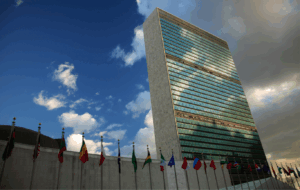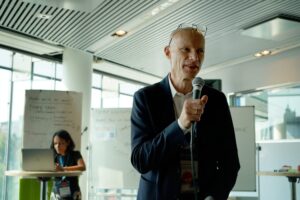SIWI debates climate change and groundwater at SOAS
The opposite view – or at least a preparedness to apply the precautionary principle – was the point of departure for a workshop I presented at, hosted in January by the School of Oriental and African Studies (SOAS) in London. The National Law University of Delhi and SOAS gathered some 30 experts for the workshop to create a consultation on climate change and groundwater with the aim of raising comparative and international law and policy dimensions. This was done to ultimately improve the understanding of how groundwater regulation in India can evolve.
Although a connected environmental risk issue, India at large faces different groundwater problems than the UK. Population growth in combination with changing consumer habits is putting immense stress on India’s water resources. Aquifers are the main source of water for irrigation and households (rural and urban alike) rely to an increasing degree on water from wells. In addition, many industrial sectors depend on the largely unregulated access to groundwater. Contamination of groundwater is simultaneously a problem gaining recognition. However, it is progressively acknowledged that the picture in the North-Eastern parts of the country, where scarcity is not looming, looks quite different.
These threats are not entirely new and neither are the insights that India faces a critical groundwater situation, but response from policy-makers is yet to be stepped up. The models indicate that climate variability will lead to intensified but unpredictable precipitation in India just like in many other regions of the world. This should, theoretically, produce more aquifer recharge. But, as Prof Richard Taylor warned during the workshop, there are a number of uncertainties and complexities that obscure the understanding we currently have of groundwater and climate change links. We also discussed the effects of groundwater property rights being intertwined with land ownership under Indian law as an issue that requires much greater integration between a range of actors and interests. A topic I intend to revisit on this blog.
The organisers of the SOAS workshop have entered into a partnership to jointly analyse and suggest necessary improvements of the legal and policy framework from the impact of climate change on groundwater in India. There is an immense need for such efforts in parallel with monitoring – through satellites, participatory groundwater mapping, household level rainwater harvesting, governance development and a whole host of other interventions. A positive development in a challenging context that will be interesting to follow.
The presentation given by Dr Jenny Grönwall at SOAS can be found here.








